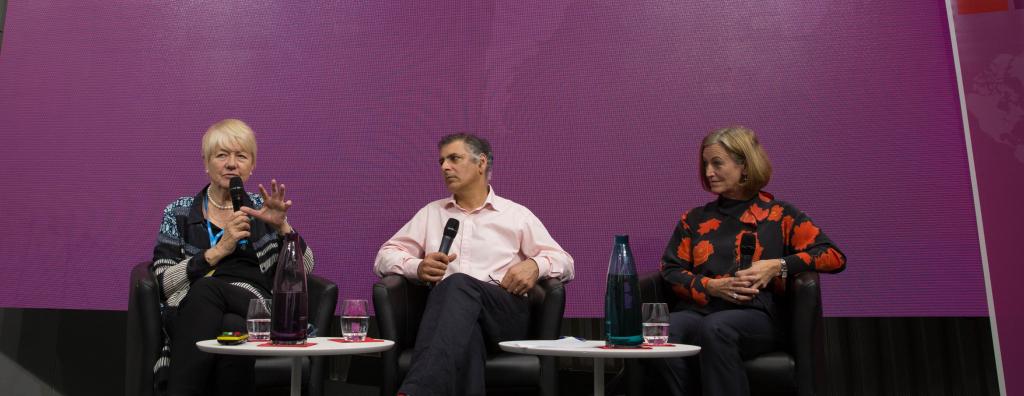“Divestment from health harming industries is one of the most popular policy approaches at the moment”, said Professor Ilona Kickbusch while opening the dialogue event on the new economic paradigm on NCDs during the 71st World Health Assembly in May. The event explored the often-ignored impact of the global financial flows on the global epidemic of non-communicable diseases (NCDs), and the different ways the global health community is addressing the issue.
The global public health actors have been usually acting on population based interventions, rather than looking into the wider context surrounding and impacting public health. With the increased awareness of the commercial determinants of health and the burden of NCDs this narrow vision gets challenged.
Consumer goods constitute a major global capital flow within which serious investments and large profits are made. Many consumer goods have either a direct or an indirect health-harming impact. To address this and in order to grasp the complexity of the issue, Professor Kickbusch argued that a different understanding of the macroeconomics of NDCs is needed. In order to discuss divestment as well as any regulatory or taxation approaches the political pressures arising from corporations and capital markets, who oppose measures potentially limiting their profits, must be understood.
“Many people think the problem is already solved and that surely no-one invests in tobacco anymore”, explained Dr Rachel Melsom from Tobacco Free Portfolios. “In reality almost everyone still does, even though the economic and health case for divestment is clear”. Divestment, demanded also by the Framework Convention for Tobacco Control (FCTC), is not a quick fix and requires collaboration between sectors not usually linked to health. At the same time, fourteen out of the 17 UN Sustainable Development Goals are directly impacted by tobacco, making the mandate for multisectoral action very clear.
“We have only recently started thinking about why governments should invest in NCD prevention and also what is the economic cost of inaction” said Dr Nick Banatvala from the Secretariat of the UN Interagency Task Force on the Prevention and Control of NCDs at the World Health Organization. At the same time, many of the tools available, such as best buys and the FCTC, are yet insufficiently used or implemented. As Dr Banatvala said; “Rather than looking for something new, we better get on with it and do the things we know work!”
However, the barriers to implementation are often political. Collaboration between government sectors at the national level, as well as between different UN agencies at the global level is crucial for gathering broad expertise to tackle the complex determinants of NCDs. The solutions are political, too, and cross-sectoral collaboration requires making the health argument in a language that can be understood across sectors. Capturing the shared benefits of financing health systems with the so-called “sin taxes” is a way combining the agendas of communicable and non-communicable disease silos and promoting health and wellbeing under the SDG mandate.
This event followed the continuous involvement of GHC in the political discussions leading up to the UN high-level meeting on NCDs to be held on 27 September 2018.
Outcomes of earlier discussions can be found through the links below:
-
Commentary: Politics and Expertise meet at the WHO Independent Global High-level Commission on NCDs
-
NCDFREE Geneva Bootcamp: Empowering the Next Generation of Leaders
-
President Tabaré Vázquez: The right to health and life must be protected
-
Commercial determinants of health - the role of governments remains crucial


